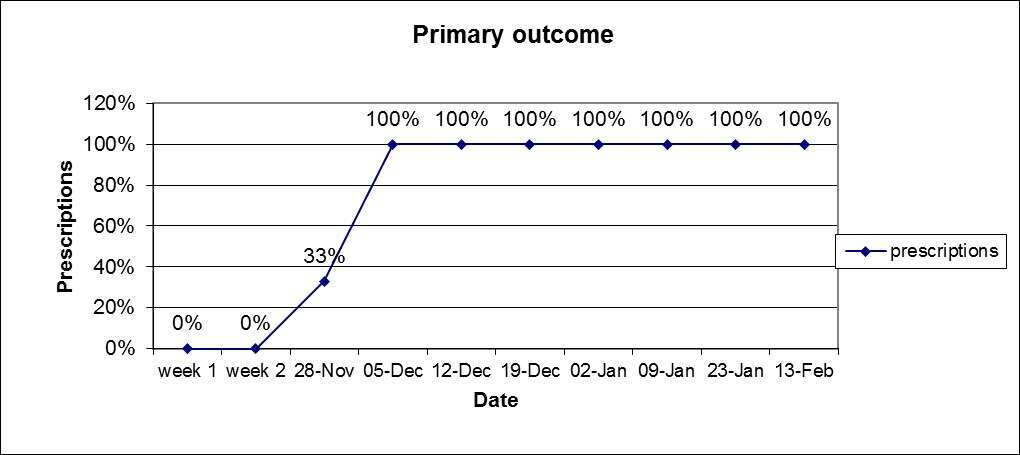
Improving Prescription Process for Cystic Fibrosis Patients Attending a Tertiary Referral Centre
Background: There was no standardised process for providing repeat prescriptions for patients with cystic fibrosis (CF) attending our department. Risks of poor patient compliance with medications and medication error were identified.
Aim: Using the SMART acronym (Specific, Measurable, Applicable, Realistic, Timely) the aim was to increase the number of repeat prescriptions written after review appointment, from a baseline of 0% to 100%, for patients with CF.
Methods: Current practice in our department is that parents contact the CF team as needed for repeat prescriptions. Using the fishbone diagram and process map, we identified variation within the system.
After meeting with the CF multidisciplinary team (consultants, registrars, nurses and pharmacist) we identified change ideas. The first Plan/Do/Study/Act (PDSA) cycle was to write classic repeat prescriptions during each clinic visit. Then we applied PDSA for both classic and electronic high-tech prescriptions. A final cycle then included preparing and processing all prescriptions after clinic.
Results: There are 100 patients with CF attending our tertiary referral CF centre. Number of repeat prescriptions written at the end of the clinic (primary outcome measure) increased to 100% from 0%. There are 4-12 patients per clinic and every patient requires prescription medication. All prescriptions are checked by the CF pharmacist.
Previously we received approximately 5 parental requests per day, each taking typically 20 minutes to process (balancing measures). By improving the primary outcome, we improved balancing measures and reduced the time spent daily on repeat prescriptions.

Conclusion: By improving the prescribing process, we minimised the waste within the department and for the patients. We transferred the responsibility for the repeat prescriptions from the patients to medical team, we improved medication safety and reduced patient risk.
Powered by Eventact EMS